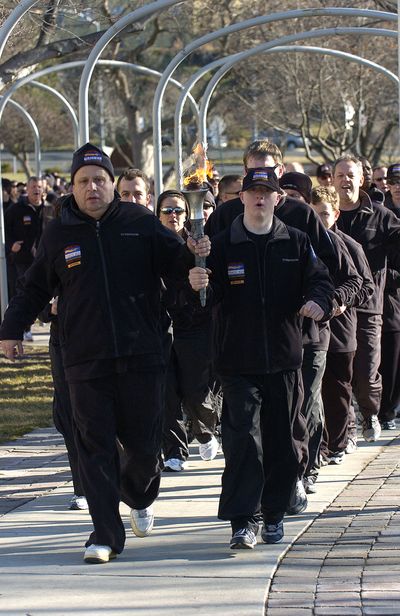Boise Special Olympics feels impact of downturn

BOISE – Two years ago, organizers with the Special Olympics World Winter Games hoped to raise at least $23 million in cash donations, hire a staff of around 100 people and bring as many as 3,000 athletes to Boise for the international event. Analysts with the Idaho Department of Commerce said the games could bring $42 million to the state.
But since then everything, like the economy, has shrunk.
“Our situation is global, and it has impacted us,” said Kirk Miles, the vice president of games and events for the Special Olympics, a competition for athletes with intellectual disabilities. “Some of our less-developed programs around the world just financially can’t bring as many people as they like. It’s just a few more Special Olympics athletes around the world who had hoped to be at the games, but can’t be because of the economic problems, and that affects us all.”
At every games, not all the athletes who announced their intent to compete make it to the event, he said. But for the 2009 World Winter Games – which start next Saturday in Boise – those numbers appear to be ticking upward as the economy declines.
“They always see a 1 to 2 percent drop-off and ours may be another percentage point or two above that,” he said.
Roughly 2,500 athletes are expected to attend, he said.
Meanwhile, cash donations have come up short, said Bruce Schrepple, CEO of the games. At one point, organizers were so optimistic that they anticipated raising $31 million in cash and another several million in in-kind donations of labor, materials and facilities.
The new goal has been reduced to $21 million in cash, with another $11 million or so in in-kind donations. And with a week to go before the games, organizers are reviewing their backup plans in case they fall short.
“We’ve made the investments to make sure the venues, communications, foods and sports events will be funded,” Schrepple said. “But there’s open and closing ceremonies, the festival, the back-end cost and studies done after the games and those sorts of things where we could still make some adjustments.”
Lots of adjustments have already been made: Only about 50 paid staffers are working on the event, and volunteers are being asked to take on additional duties to fill the gap. The Idaho National Guard is providing labor for events, and a local car dealership is loaning vehicles to help move all the people and equipment where it needs to go. Several food service providers have agreed to donate and deliver food to the athletes, and Northwest Nazarene University is assembling gift bags for the athletes. Local construction companies have donated labor to build the floor hockey arenas, award podiums and judging stands.
“It’s a pretty lengthy list,” Schrepple said. “We just asked folks to do more than what you usually do. In the end, I’m very confident, but a lot of us have had to work very hard to get this all done.”
Another shortage is with the organization’s Host Town program, where local families agree to take in athletes and international delegations before the games. The accommodations allow the athletes to get acclimated to the climate and altitude, and allow for new friendships and cultural experiences to be built between families and athletes, he said.
“It looks like we’re going to be somewhere in the 900-range of people that we’re going to have to put them up in hotels,” Schrepple said.
Idaho taxpayers are pitching in $3 million to pay for the games, and more than $7 million more has come from the federal government.
Organizers have already cut back on the sound, lighting and production equipment for the opening and closing ceremonies and canceled at least one entertainment act to trim the budget. But the core events will go on, Schrepple said.